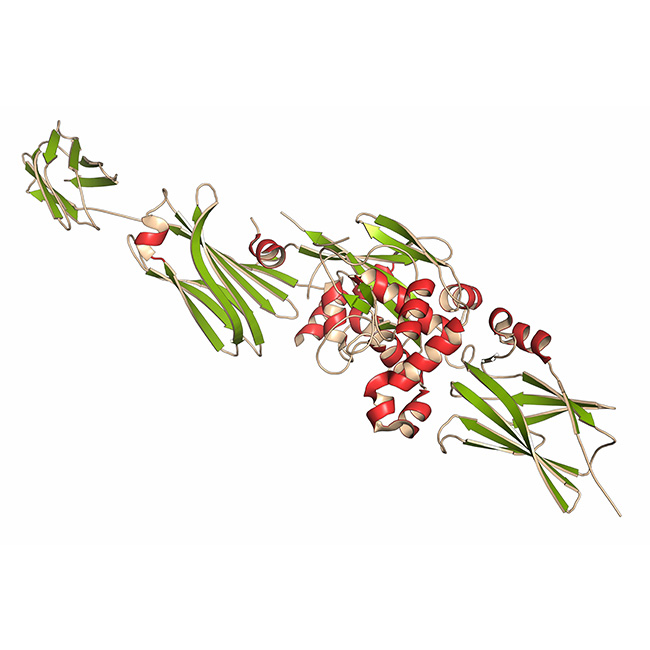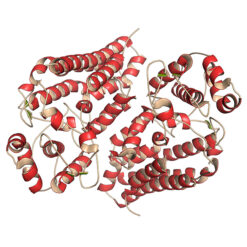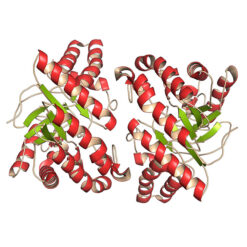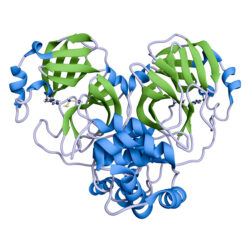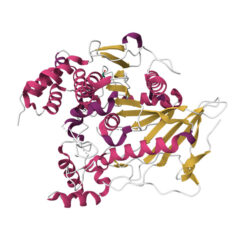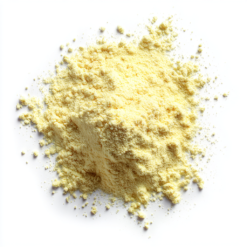Transglutaminase is an enzyme that catalyzes the formation of cross-links between proteins, leading to the formation of stable protein networks. It is a naturally occurring substance in many organisms, including the human body, where it participates in processes related to blood coagulation. It has the ability to cross-link lysine and glutamine bonds (introduce covalent cross-links between glutamine and lysine).
Transglutaminase in baking:
Transglutaminase has been widely used in the baking industry for its ability to improve the texture and quality of bakery products.
- Improved bread texture: Transglutaminase enables the formation of stronger protein networks in doughs, leading to better texture and greater bread volume.
- Increase dough elasticity: this enzyme can make dough more elastic, making it easier to handle and model.
- Ingredient optimization: Allows the use of more water in formulations, which can lead to reduced production costs.
- Extended shelf life of baked goods: With stronger protein bonds, baked goods stay fresh longer and are more resistant to drying out.
- Improved flavor: Improved texture of bread can affect its taste and aroma, making the product more appealing to consumers.



